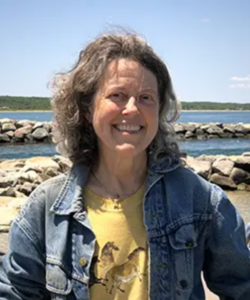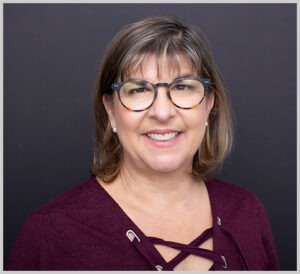Speaker Bios
Jason Cotrell
Jason Cotrell is the Founder and CEO of Sperra. He founded Sperra, originally RCAM Technologies, in 2017 after beginning his renewable energy career at NREL in 1995. With 30 years in the field, Jason focuses on turning breakthrough concepts into ocean energy infrastructure that scales. Sperra is at the forefront of the ocean energy industry with cutting-edge, locally manufactured infrastructure solutions. Under Jason’s leadership, Sperra has now reached commercialization stage for several 3D concrete-printed products, including gravity anchors for offshore wind and floating solar deployments, foundations for canal solar. Jason also leads the development of high-impact, emergent technologies such as the Floating Construction Station and solar-powered data centers.
Cymie Payne

Cymie Payne is Professor at Rutgers University, and a member of the Department of Human Ecology, SEBS and the Law School. She teaches climate change law and policy, international environmental law and policy and U.S. environmental law and policy. She publishes extensively on global governance of the environment and natural resources and the consequent evolution of international law, with a focus on ocean governance, climate change, and protection of the environment in relation to armed conflict.
As Chair of the Ocean Law Specialist Group of the International Union for Conservation of Nature (IUCN), World Commission on Environmental Law, Payne leads IUCN’s work on legal aspects of the Biodiversity Beyond National Jurisdiction Agreement. She led the team for IUCN’s submission to the International Tribunal for the Law of the Sea in its 2024 advisory opinion case on climate change and she has provided expert advice on environmental liability and reparations before courts including the International Court of Justice. She is a member of the Atrocity Crimes Advisory Group for Ukraine.
Payne is a Fellow of the American College of Environmental Lawyers; served as Chair of the American Society for International Law’s Steering Committee for the Signature Topic “Beyond National Jurisdiction”; was a member of the International Law Association Committee on Sustainable Natural Resource Management; and is a recipient of the 2025 Nicholas Robinson Award for Excellence in Environmental Law and Policy. She holds a Master’s degree from The Fletcher School of Law and Diplomacy and a Juris Doctor from the University of California, Berkeley.
Helen Rozwadowski
Helen M. Rozwadowski is a professor of History and founder of the Maritime Studies program at the University of Connecticut, Avery Point. She graduated from Williams College and received her M.A. and Ph.D. from the University of Pennsylvania in 1996. Her teaching includes environmental history, history of science, and public history, as well as interdisciplinary maritime studies courses.
Her latest book, Vast Expanses: A History of the Oceans (2018), demonstrates that the human relationship with the ocean began in evolutionary time and has tightened dramatically since then, aims to provide a model for writing ocean history, and argues that ocean histories must examine and historicize the technologies and knowledges systems that enabled and accompanied human interactions with the sea. Her book, Fathoming the Ocean: The Discovery and Exploration of the Deep Sea (2005), which reveals the simultaneous scientific and cultural discovery of the ocean’s depths in the mid-nineteenth century, won the History of Science Society’s Davis Prize for best book directed to a wide public audience. She has written a history of 20th-century marine science, The Sea Knows No Boundaries (2002), a history of 20th-century marine sciences supporting international fisheries policy. She has co-edited three volumes that have helped establish the field of history of oceanography: Soundings and Crossings: Doing Science at Sea 1800-1970 (2017), The Machine in Neptune’s Garden: Perspectives on Technology and the Marine Environment (2004), and Extremes: Oceanography’s Adventures at the Poles (2007).
Rozwadowski has worked in the past both as a public historian and also in academia. She won the Ida and Henry Schuman Prize from the History of Science Society, was awarded the William E. & Mary B. Ritter Fellowship of the Scripps Institution of Oceanography, has been a guest researcher at the University of Oslo, and has received grants and fellowships from the Rachel Carson Center for Environment and Society, the UConn Humanities Institute, National Endowment for the Humanities, National Science Foundation, and the Smithsonian Institution.
Joellen Russell

Prof. Joellen Russell is an oceanographer and climate scientist, a Distinguished Professor, and the Thomas R. Brown Distinguished Chair of Integrative Science in the Department of Geosciences at the University of Arizona. Her research uses robot floats, supercomputers and satellites to observe and predict the ocean’s role in climate and the carbon cycle. Dr. Russell is the modeling lead for the Southern Ocean Carbon and Climate Observations and Modeling project (SOCCOM) and is the current US Representative to the International Association for the Physical Sciences of the Oceans (IAPSO). She is also one of the founding members of Science Moms (sciencemoms.com), a “group of nonpartisan climate scientists and mothers, working to give our children the planet they deserve.” Before joining UA, Dr. Russell was a Research Scientist at Princeton University and the National Ocean and Atmospheric Administration’s Geophysical Fluid Dynamics Laboratory (NOAA/GFDL). She received her PhD in Oceanography from Scripps Institution of Oceanography, University of California, San Diego, and her A.B. in Environmental Geoscience from Harvard.

